Talking rubbish!
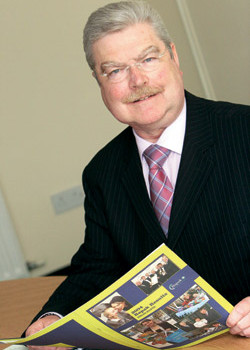
Fionnuala Carolan spoke to CEO of recycling company Repak, Andrew Hetherington, about the huge steps the group has already taken and the challenges ahead
19 April 2011
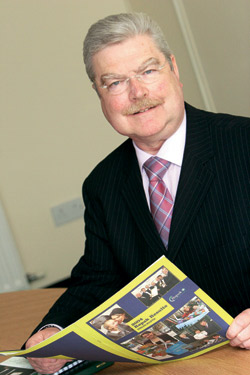
Repak CEO, Andrew Hetherington
In the past 14 years Repak has grown packaging recycling in Ireland from under 15% to over 65% and has diverted over five million tonnes of packaging from landfill. The company now has approximately 2,400 members and works off the shared producer responsibility model. The packaging manufacturer, the brand holder and the retailer all pay a set proportion for the one package which makes it affordable to recycle.
CEO Andrew Hetherington, originally from Glasgow, was faced with a major challenge when he arrived in Ireland in ’97.
“When we started here we were coming last in the domestic sector in the EU 15 and in just 10 years, we had got to eighth place out of 27 countries and I suspect we have climbed higher still. It’s of great credit to householders. We reached the plateau a few years ago of what we could get back from industry so the growth is all coming from the domestic side with people carrying out more segregation. Now something like 96% of all homes in the Republic have got direct access to a Repak funded packaging collection scheme.”
When Greens were in government
You would consider that having the Greens in government would have been a good support for Repak yet this wasn’t initially the case.
“They came into government suspicious,” says Hetherington. “They felt that a scheme put together by industry couldn’t be doing its job properly. After about six months, the minister said he was surprised at how sucessful our scheme was. He said he could hear industry complaining that we were charging too much and local authorities and collectors complaining that we were not paying them enough so that told him that we were getting it about right! They became supportive of what we were doing. They embarked on a long process of doing an international waste review which was published recently and I suspect that the incoming administration will pick that up or at least parts of it. It speaks of increasing targets from 60% to 75% by 2013.”
Although Hetherington thinks that Ireland can hit the 75% target he thinks the timescale is not feasable.
“Targets are highly ambitious and way above what we need to do under the packaging directive, which is only 60% recovery and 55% pure recycling of used packaging. To go to 75% recycling would be extremely difficult and also extremely costly as it would require recycling more difficult to recycle items and higher segregation and separation costs. Not to mention greater recycling by households.
“The 2013 timeline is unrealistic. Indecon (International Economic Consultants) looked at this and said we need greater membership and that it could not be achieved until at least 2018. We would also need to have greater enforcement to allow us grow our membership base/income and spread the burden of cost more equitably.”
He also says that more extensive implementation of PBW (Pay by Weight) and PBU (Pay by Use) would also be needed.
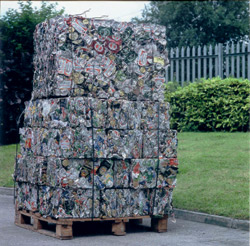
Repak has diverted 5 million tonnes of packaging from landfill since 1997

Repak has diverted 5 million tonnes of packaging from landfill since 1997
Shared responsibility
Some small businesses contest the Repak membership fees as they feel that they pay over the odds for the amount of waste they produce in comparison to others in the industry. Small producers with less than ten tonnes of packaging a year and an annual turnover less than €1 million pay €980 plus VAT to join the scheme.
Retailers who produce more than ten tonnes and whose turnover is over a million euros can self comply by signing up with the local authority. “Self compliance is only for small businesses that have one location and we would advise some of those companies to self comply”, says Hetherington. “If you are a large entitiy, the balance swings back in favour of being a member of the scheme. But you’ve got a choice.”
Repak argues that it has not increased its fees since 2008 and cannot afford to cut costs any further. Hetherington says the hardest thing for him is meeting with members who have had to cut costs and they can’t understand why Repak can’t do the same but he says they are only charging what it costs.
“We’ve cut a lot of our overheads. We have reduced our head count and we haven’t increased our subsidies to local authorities so we are asking them to do more for less.”
Aside from dealing with industry Repak also engages in a lot of community works by funding green schools programmes, tidy towns and GAA initiatives. It is also involved in researching new packaging technologies.
The company has made great strides with prevention and minimisation of packaging to date. “We employ packaging technologists and we work with our member companies on programmes to reduce their bills. We investigate what it would mean to the product if we used a different material.”
Programme for Government
The new Programme for Government has proposed the introduction of a packaging tax and Repak has been speaking with members about its feasability. “We’ve already been talking to Retail Ireland and RGDATA and we want to be clear that if you’re not happy with Repak, now is the time to say it. There is a chance to do things differently. The feedback that we’ve got is all about money. Most are happy with Repak but they don’t want to pay as much yet we’re one of the lowest cost schemes amongst 32 countries and we shouldn’t be because we have a high cost economy,” he says.



 Print
Print

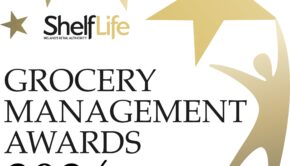

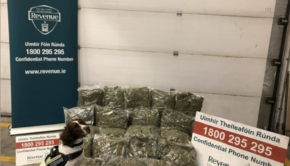
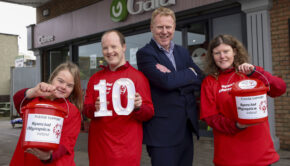

Fans 0
Followers